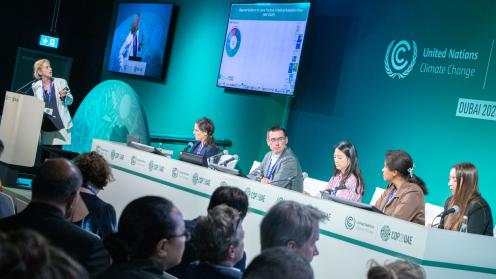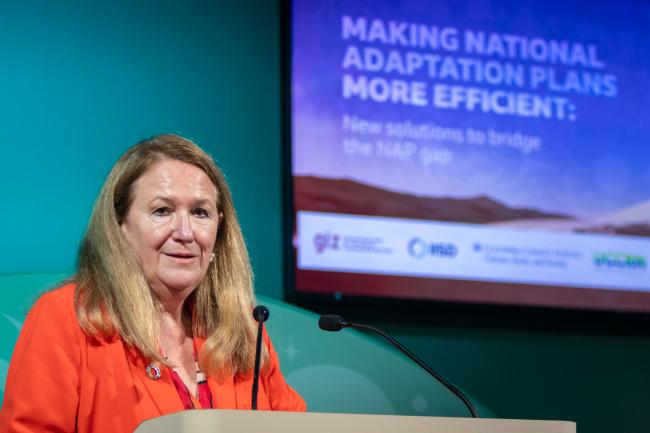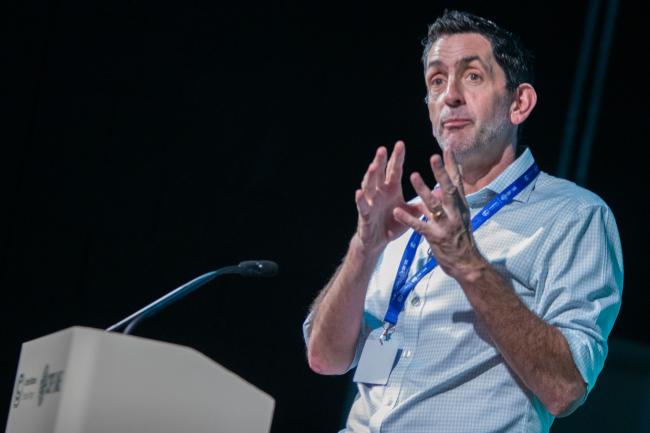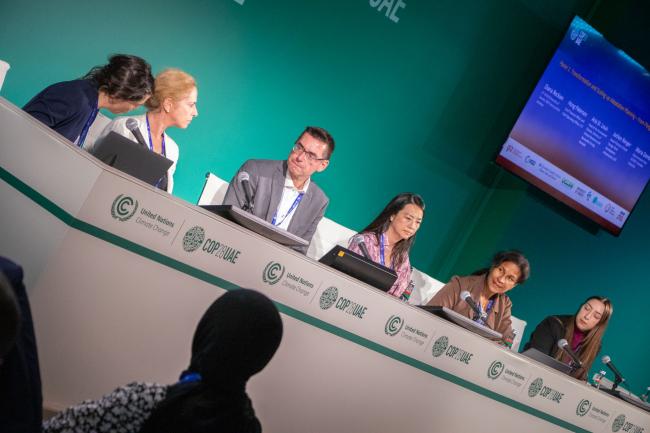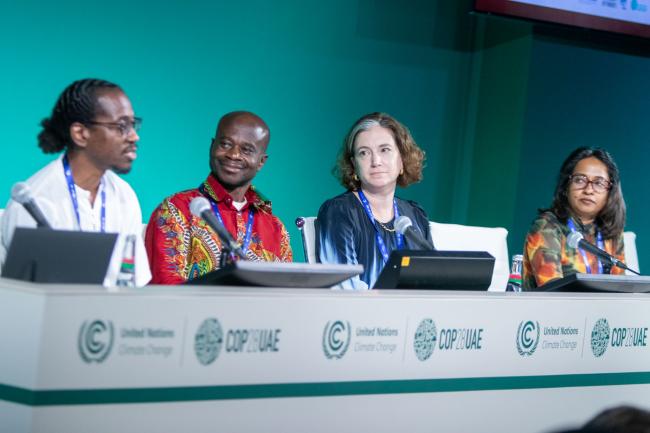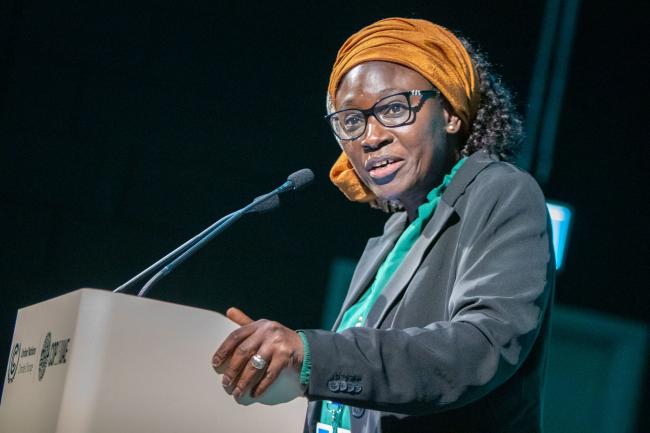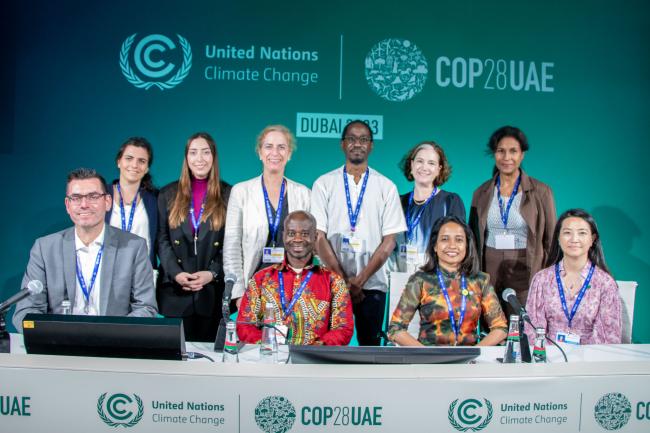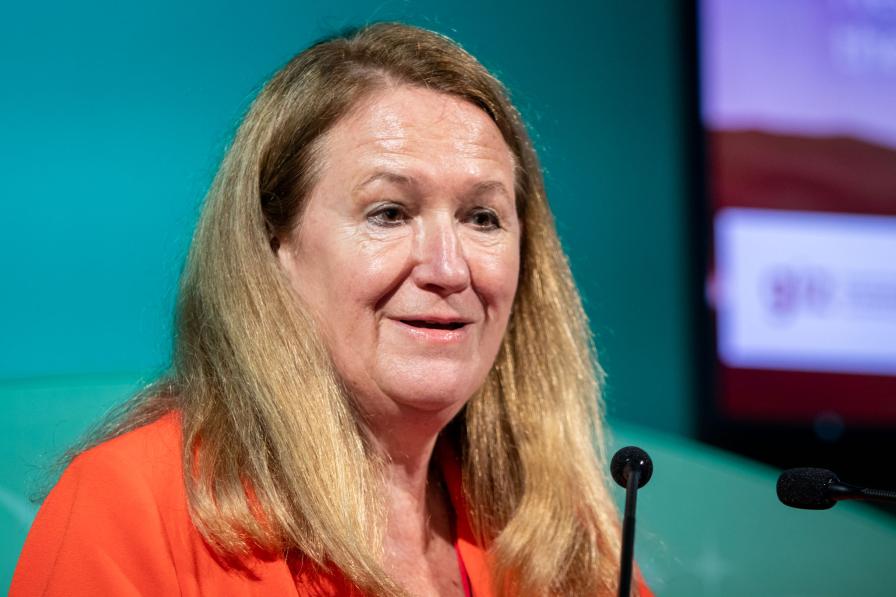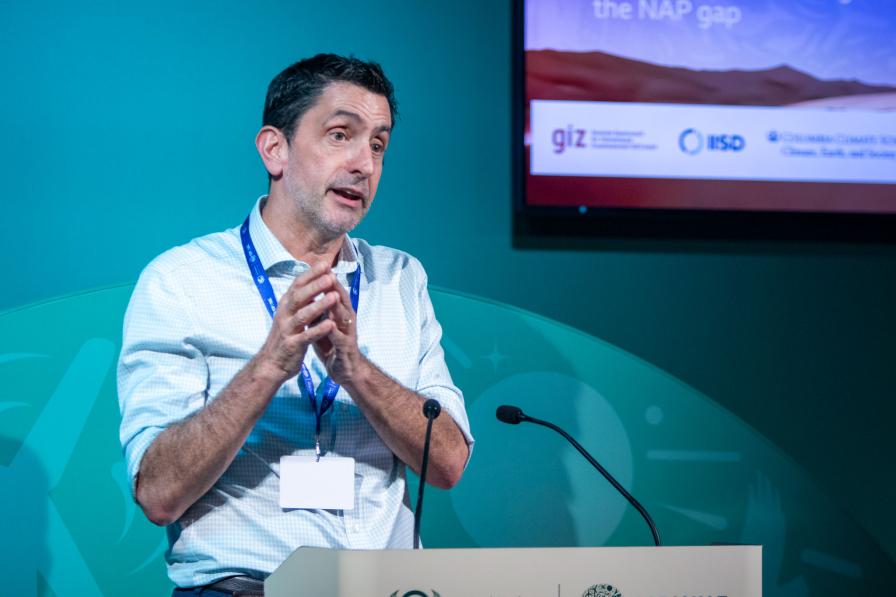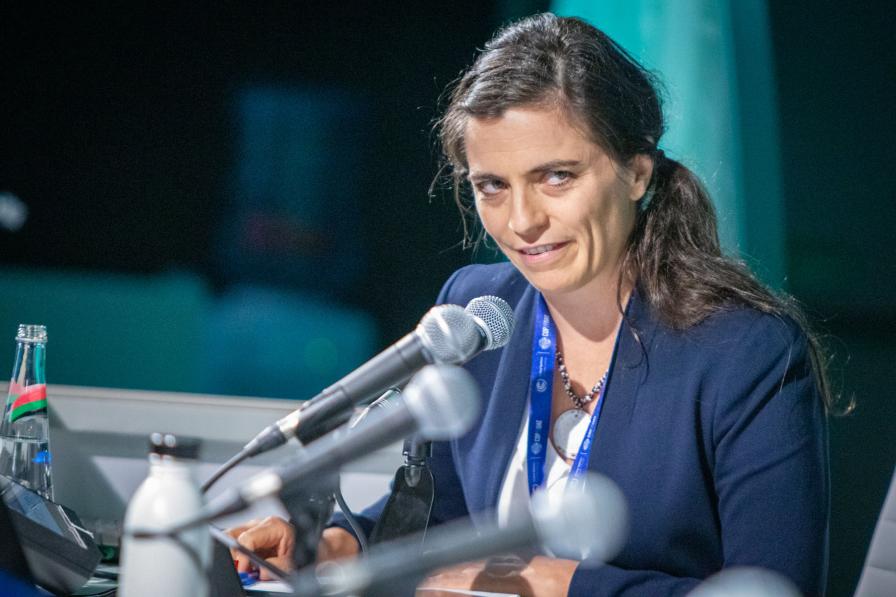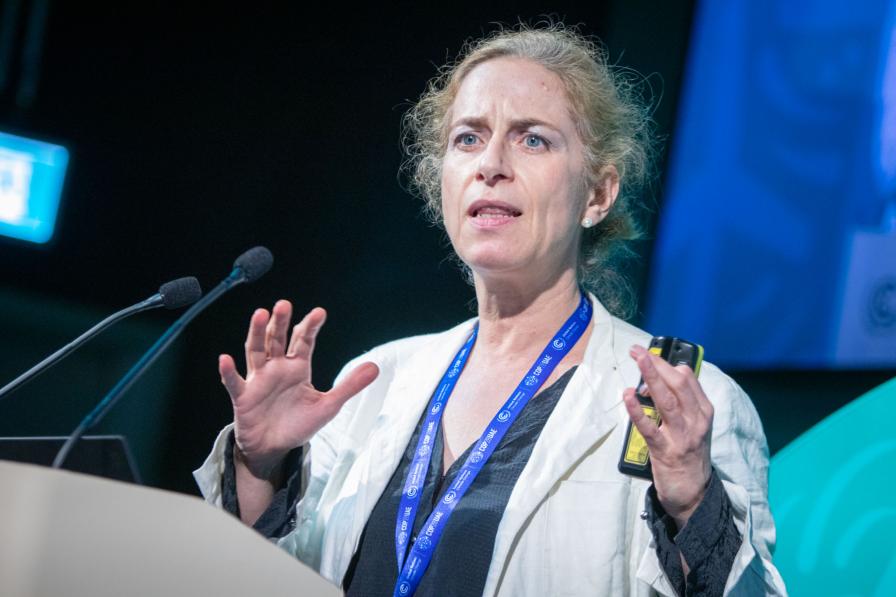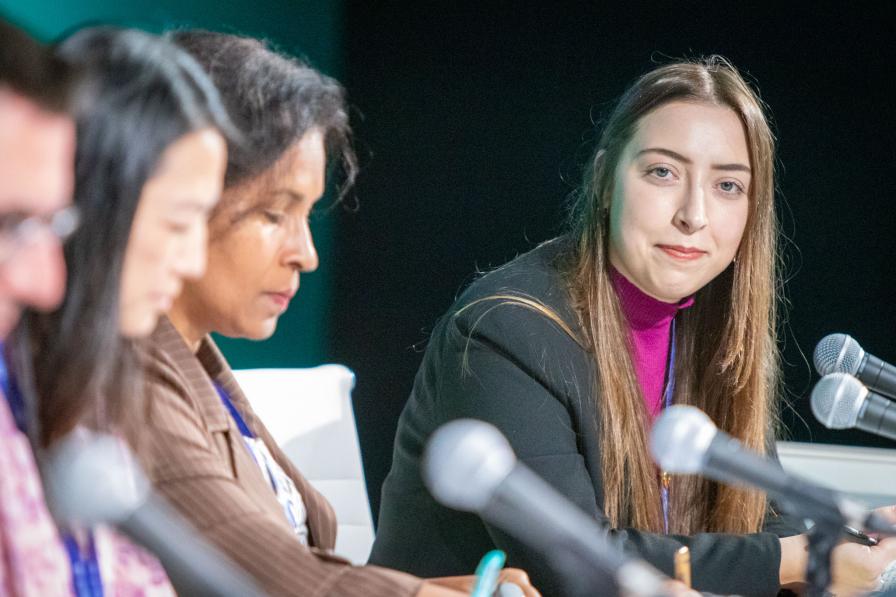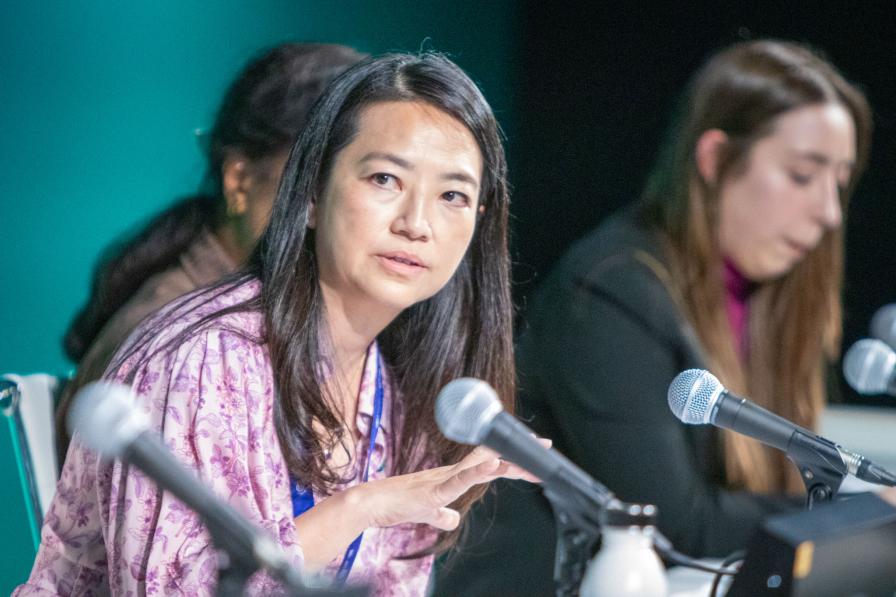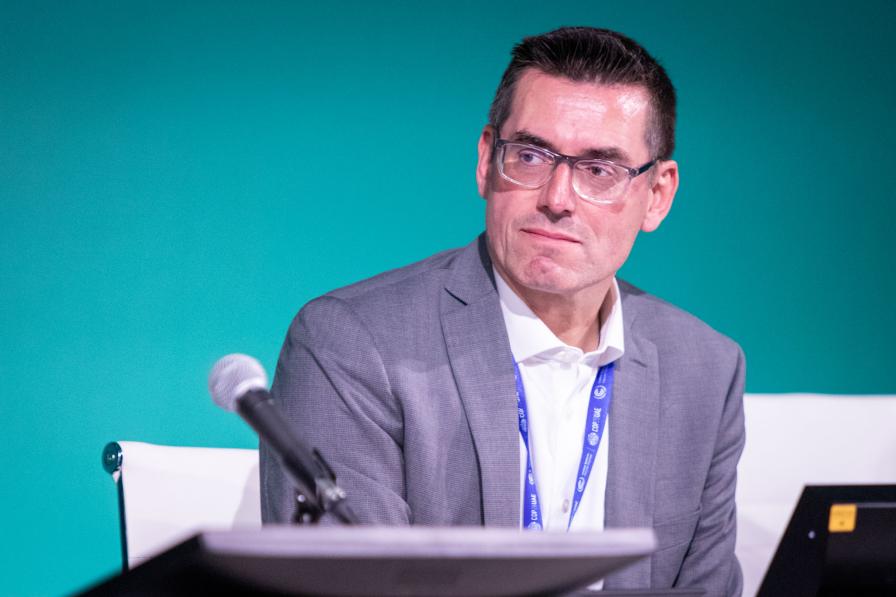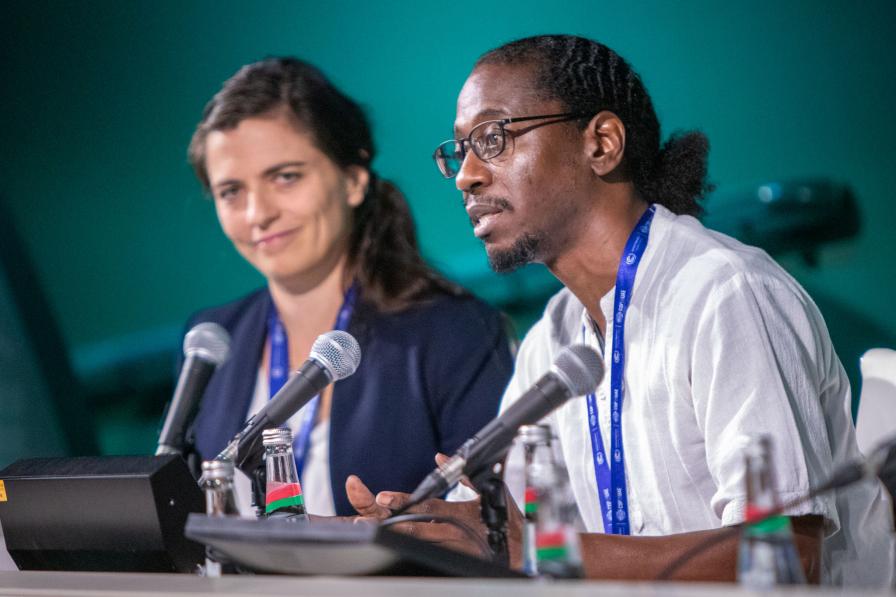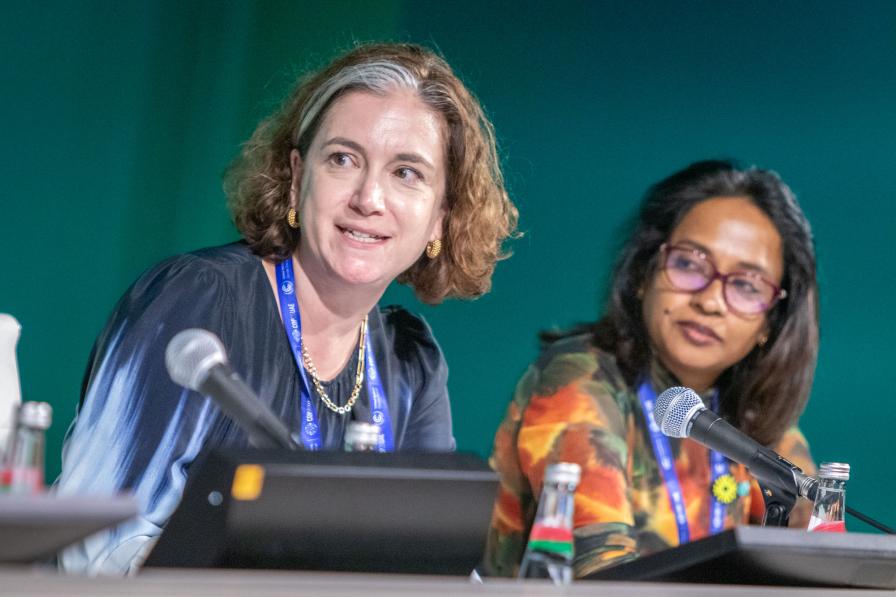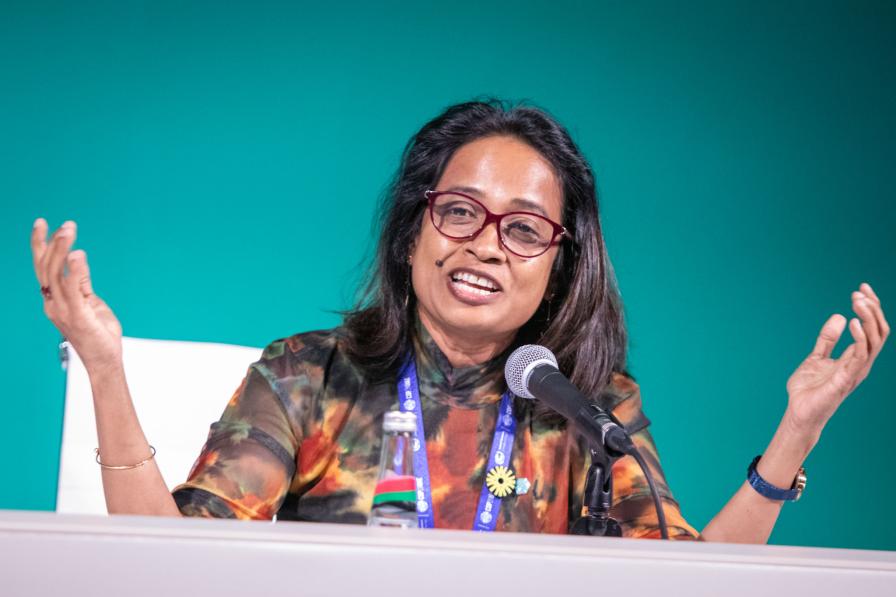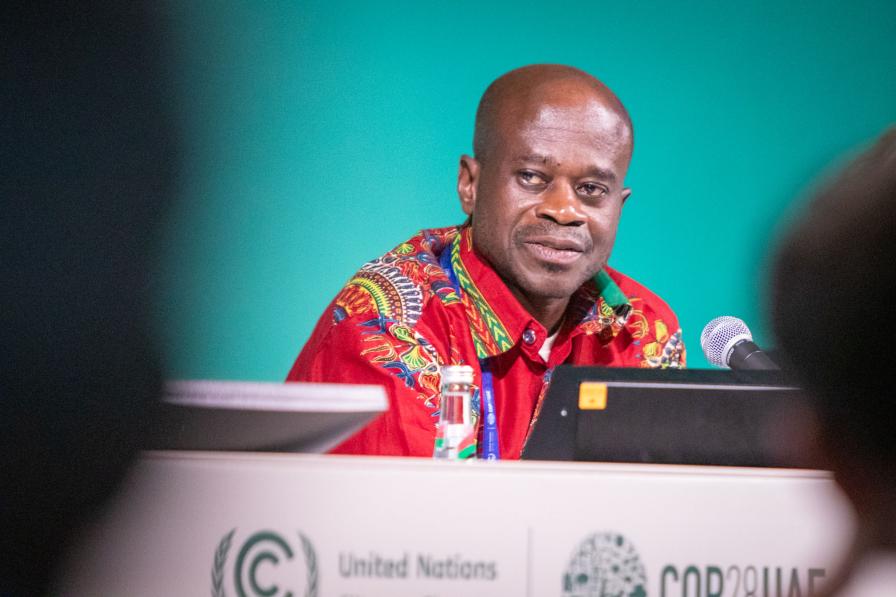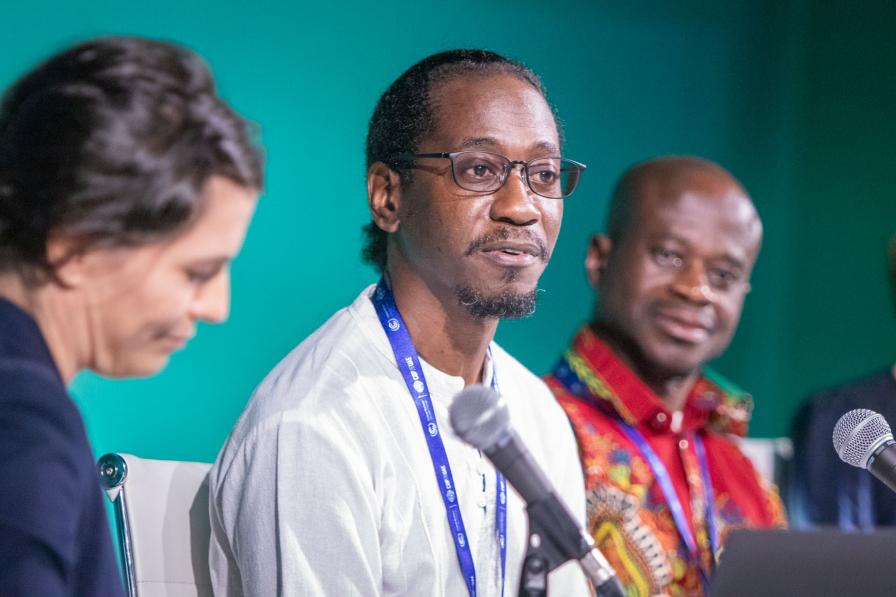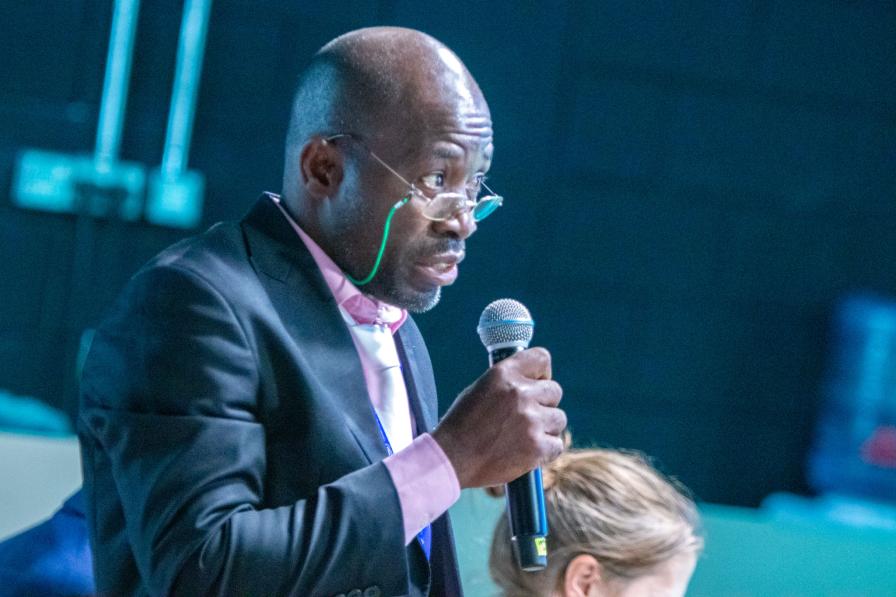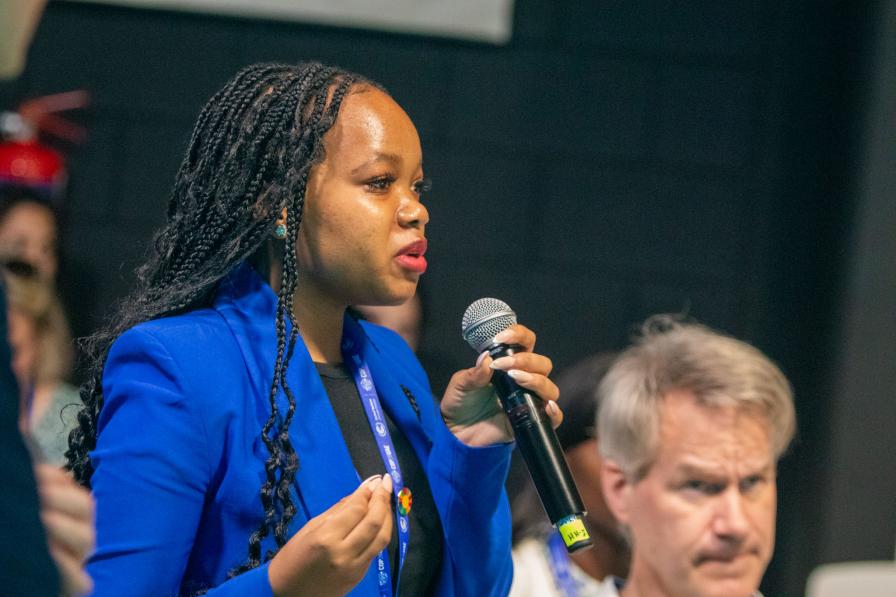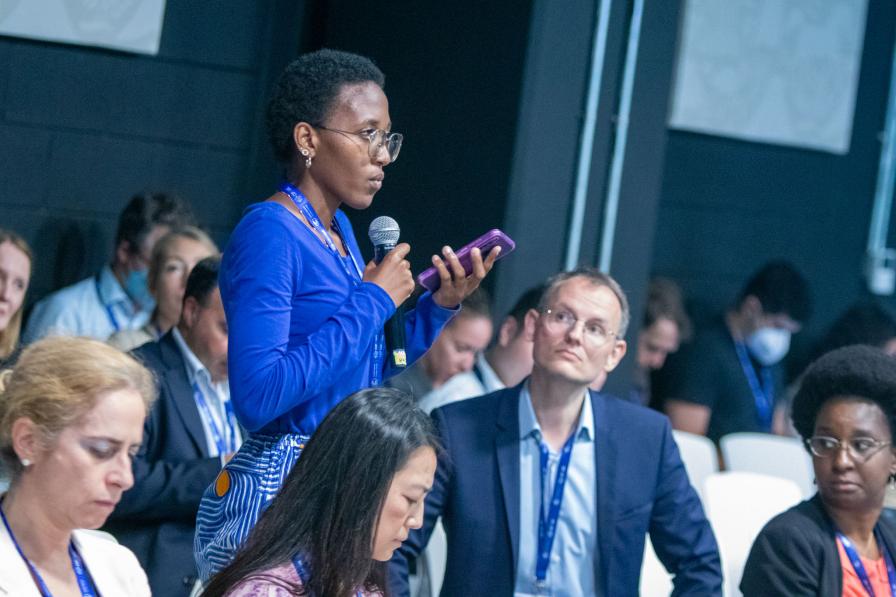Summary
National Adaptation Plans help countries identify, prioritize, implement, and track adaptation action that reduces vulnerabilities to climate risks. This event, organized by IISD, highlighted best practices, as well as identified gaps, towards effective, inclusive, and ambitious NAP processes.
Making National Adaptation Plans More Efficient: New Solutions to Bridge the NAP Gap
National Adaptation Plans (NAPs) are an internationally recognized instrument to identify, prioritize, implement, and track progress toward necessary adaptation action to reduce vulnerability to climate risks. However, the implementation of adaptation action comes with significant governance, financial, and inclusion-related challenges.
This event, organized by the Deutsche Gesellschaft für Internationale Zusammenarbeit (GIZ), the International Institute for Sustainable Development (IISD), the NAP Global Network, BBC Media Action, the University of Twente, the Global Green Growth Institute (GGGI), and the Urban Climate Change Research Network at Columbia University (UCCRN-CU), highlighted best practices, as well as identified gaps, towards effective, inclusive, and ambitious NAP processes. In particular, it provided perspectives to support least developed countries (LDCs) and small island developing States (SIDS) in preparing NAPs that can be operationalized and financed.
The event was moderated by Sonja Berdau, GIZ, who introduced Ingrid Gabriela Hoven, Managing Director, GIZ, to provide opening remarks. She noted that COP 28 is “entering into its decisive phase,” and lauded the progress made to support resilience through the establishment of the loss and damage fund, which she said represents an “important signal” to the broader climate finance agenda about the importance of mobilizing funds to support NAPs.
She highlighted four key observations: the importance of taking a multi-stakeholder, multi-sectoral approach to designing and implementing NAPs; the need to assess medium- and long-term implications of climate change within NAPs; the need for country-specific approaches when implementing NAPs; and the need for further efforts to provide resources and enhance capacity for implementation at the national, subnational, and local levels.
Justin Rowlatt, BBC, spoke about the central role adaptation is playing in the negotiations over the final text happening at COP 28. He said that countries from the global South will not compromise on a final text should it not outline greater support from the global North to adaptation finance.
The first panel focused on the NAP process, beginning with Diana Reckien, University of Twente, who discussed work she is doing with GGGI to identify and develop guidelines for implementing robust, high-quality NAPs that also feed into the Global Stocktake. She outlined a series of good practices around implementation, participation, monitoring, and evaluation, while providing examples from different countries in the global South that are integrating these practices into their NAPs.
Aria St. Louis, Ministry of Climate Resilience and Renewable Energy, Grenada, discussed what is needed to support NAPs in her country. She highlighted progress at the policy and legislative levels that have enshrined NAPs into fiscal strategies, as well as the establishment of a National Climate Change Committee. She stressed the importance of participatory approaches to designing and implementing NAPs, a whole-of-government approach, and the need for climate risk screenings for all capital projects.
Jochen Renger, GIZ, spoke about the importance of developing an inclusive NAP process. He said it is necessary to base these plans on empirical evidence and robust information, underscoring that “NAPs are not about [making] a wild guess. They need to have a scientific foundation.” He discussed the importance of conducting climate risk analyses across sectors to provide a conceptual framework that can inform NAPs.
Maria Dombrov, Columbia University, focused on the interlinkages between NAPs and extreme events, arguing that supporting disaster risk reduction requires incorporating these into the NAP process. She highlighted the upcoming Urban Climate Change Research Network Third Risk Assessment Report that will focus on how climate risk analysis can work alongside adaptation strategies to effectively support the NAP process.
Hong Paterson, Green Climate Fund (GCF), shared strategies the GCF is undertaking to support the NAP process and adaptation more broadly. Noting that over 50% of their portfolio focuses on adaptation, 30% of which supports projects in least developed countries (LDCs), small island developing States (SIDs), and African countries, he added “it takes a village to help with the issue of adaptation,” and stressed the need to support readiness programming to help with NAP planning.
The second panel, focusing on NAP implementation, kicked off with Orville Grey, Head of Secretariat, NAP Global Network, who discussed the importance of supporting vulnerable partners for the “effective and inclusive” implementation of NAPs, and the need to leverage capacity and financial capital to do so.
Antwi Boasiako Amoah, Director, Environmental Protection Agency, Ghana, said that adaptation planning and implementation is context-specific and underscored the need for vertical and horizontal planning. He stressed the importance of identifying and mapping out appropriate stakeholders to identify key vulnerabilities and risks facing different sectors.
Caroline Sugg, BBC Media Action, underscored that communication and media have a “critical influence” on climate action and stressed their importance in the “age of disinformation.” She discussed evidence that shows communications can increase the reach of climate investments in NAPs, but noted that different kinds of information – from scientific to community voices – need to be shared to maximize reach and encourage inclusion.
Achala Abeysinghe, GGGI, highlighted the work her organization is doing to support climate resilience and socially inclusive development in ways that support NAPs. She said that, while alternative financial sources can play a role in building momentum, mainstream forms of financing are needed to build capacity and accelerate NAP implementation.
The Q&A session focused on topics such as: working with community and the technical barriers of language on adaptation; the need to develop the capacity of African countries to plan and implement NAPs; and effective coordination in NAP implementation.
The event concluded with closing remarks from Madeleine Diouf Sarr, Ministry of Environment and Sustainable Development, Senegal, and LDC Group Chair, who acknowledged that NAPs are an important instrument for LDCs. She urged the need for an inclusive approach that “does not leave anyone behind in the process at the national level,” and concluded by calling for NAPs to be implemented by 2030 in all LDCs and the need to scale up finance to do so.
Organizer: International Institute for Sustainable Development
Contact: Christian Ledwell | cledwell@iisd.ca
For more information: iisd.org
To receive free coverage of global environmental events delivered to your inbox, subscribe to the ENB Update newsletter.
All ENB photos are free to use with attribution. For this COP 28 side event, please use: Photo by IISD/ENB | Matthew TenBruggencate.
Select Images

Jochen Renger, GIZ; Hong Paterson, GCF; and Aria St. Louis, Ministry of Climate Resilience and Renewable Energy, Grenada;
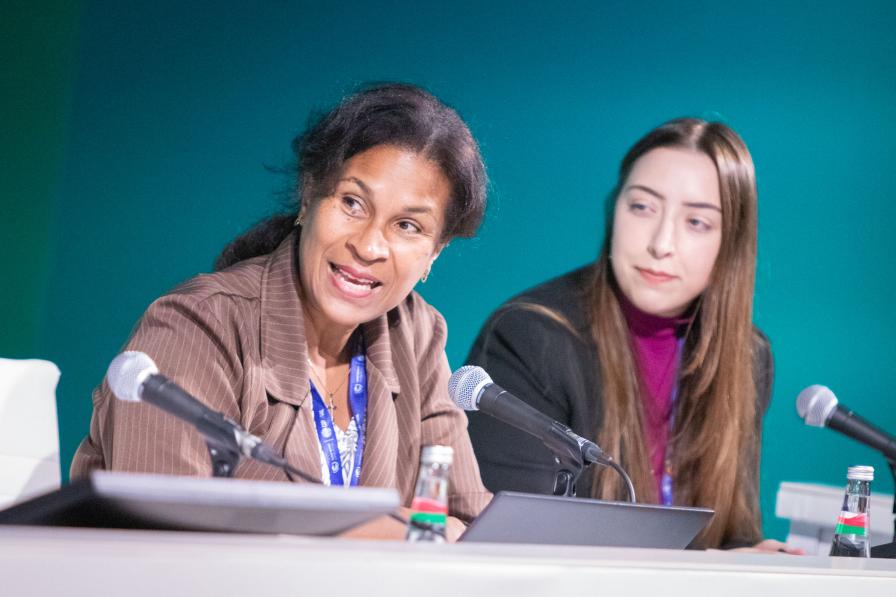
Aria St. Louis, Ministry of Climate Resilience and Renewable Energy, Grenada, and Maria Dombrov, Columbia University
